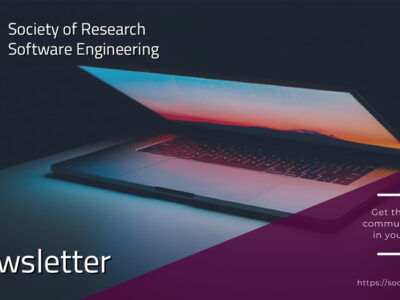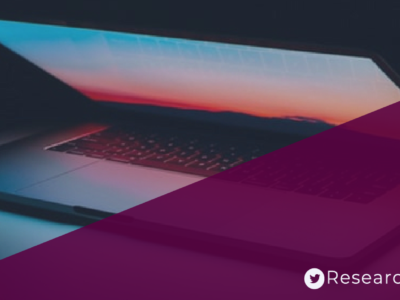Newsletter – October 2020
Welcome to the October newsletter from The Society of Research Software Engineering! Our monthly newsletter will announce new Society initiatives, gather RSE news, events, blogs, papers and anything else interesting and relevant together in one place. If you would like to add an item or suggest a new section to the next newsletter, submit it via this short form or get in touch with Claire Wyatt, RSE Community Manager.
Newsletter Contents:
>Society Update
>Announcements
>Events
>Podcasts
>Papers
>Blog posts
>Community info
>RSE Worldwide
Society Update
Trustee Election Results
Congratulations to the newly elected trustees! The following trustees have been elected to the charity for a 2 year term:
- Fouzhan Hosseini
- Marion Weinzierl
- Kirsty Pringle
- Ian Cottam
- Claire Wyatt
- Teri Forey
They join the remaining trustees entering their second year: Ania Brown, James Graham, Mozhgan Kabiri Chimeh, Joanna Leng, Paul Richmond, Matt Williams.
On the 23rd October, we held our first trustee meeting with all of the new board present to induct the new trustees, hand over responsbilities, agree on our roles and create the subgroups. We’re now up and running with our new board and looking forward to building a strategy for the next 12 months.
We’re very pleased to announce that Paul Richmond is the new President and Claire Wyatt takes up the position of Vice President. Matt Williams moves from serving as our Vice Treasurer to Treasurer and Kirsty Pringle takes up the reins as Vice Treasurer. Teri Forey has agreed to the lead role of Secretary and James Graham will continue in his role as lead on the society infrastructure. Ania Brown will continue as lead for the website content and Ian Cottam starts a new role as membership lead. For our diversity, inclusion and accessibility efforts, Mozhgan Kabiri Chimeh and Joanna Leng are joint leads. Marion Weinzierl and Claire will be joint leads for communications and publicity and Fouzhan Hosseini and Claire will work as joint leads for delivering the annual conference. For each lead role, there are several trustees as ‘seconds’ for collaborative working and to provide cover in case of absence. The Society website ‘Governance’ page will be updated soon to reflect all these exciting new changes.
We’d like to introduce you to a couple of the new trustees so please meet Teri Forey and Ian Cottam…
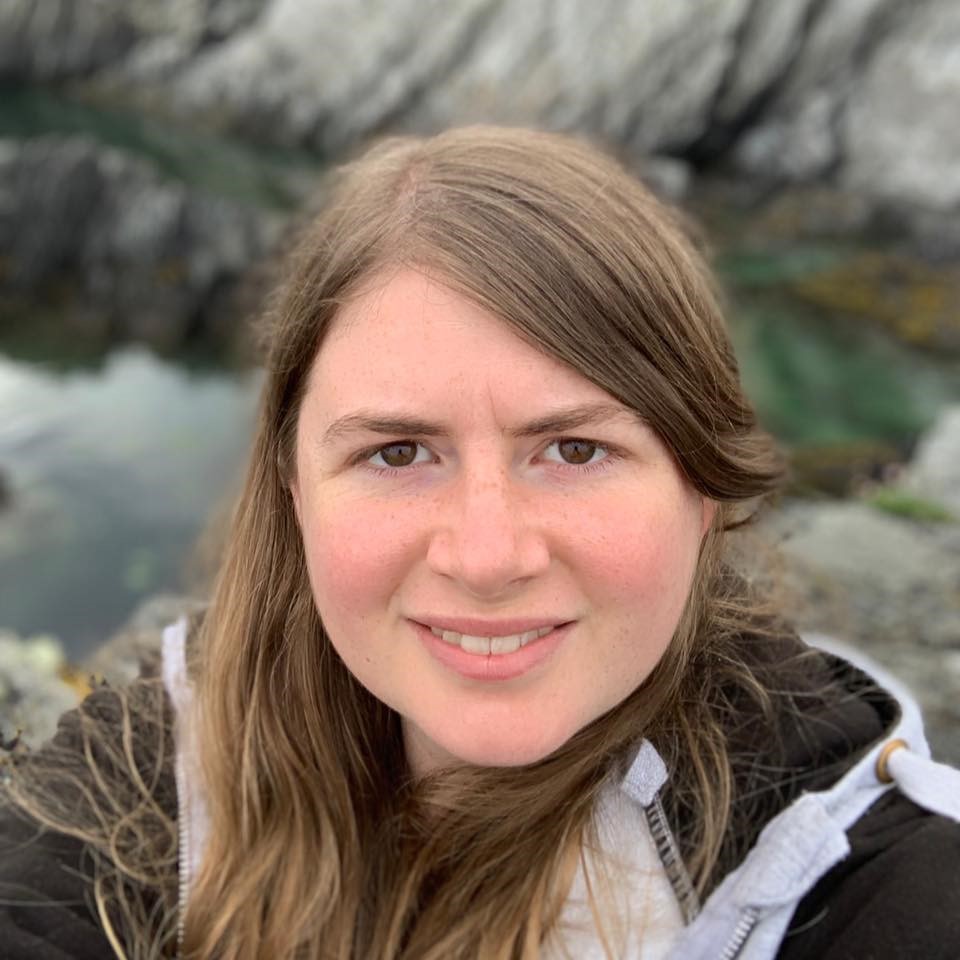
Teri Forey is a self-employed RSE working as a contractor with the Wellcome Trust, whilst also doing RSE projects with researchers at the University of Leicester. She specialises in full-stack web development and the python language although she is always learning new skills. She comes from a research background having completed a PhD and a postdoc in Computational Biology at the University of Nottingham. After which she worked as an RSE with the University of Leicester, before moving to Ireland and becoming self-employed.
She first became a member of the RSE community in 2017 when she attended the second RSE conference. She has since been on the RSE conference organising committee for the past two years, although the 2020 conference was of course cancelled. She is also an active member of the SORSE committee, helping to arrange events with an international group of RSEs. She’s passionate about the RSE role and regularly speaks about the work we do at conferences and events. She is genuinely thrilled to be elected a trustee and is looking forward to working hard for the RSE society.
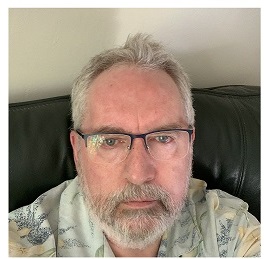
Ian was elected to the Board of Trustees in 2020. He recently retired (at the end of July 2020) after some 48 years working mainly in academia (much of it with The University of Manchester), but also industry, as a research software engineer and technical manager. His last post was as Acting Head of RSEs at The University of Manchester.
He has also spent some time at Manchester’s Business School (now the Alliance Manchester Business School) working on change management and business process re-engineering. As well as being a Member of the Society of Research Software Engineering, Ian is a Chartered IT Practitioner (CITP, MBCS), via the British Computer Society (BCS), and holds a master’s degree in computation.
RSE Society Feedback and Discussion Session
We held our feedback session on the 27th October and received some great ideas and intersting insights which will be discussed at a debrief session soon. Of course, letting us know what you think the Society can do for you and the community doesn’t stop there. You can always feedback to us at anytime via slack to any of the trustees or email [email protected]
Keep up to date – You can keep up to date with trustee meetings as we have shared a summary of Society monthly trustee meetings including the decision log.RSE Vacancies – You can post an RSE role or a role supporting RSEs to the vacancy page on the Society website via a form.
Membership to the Society
We currently have 347 members with several thousand people forming the online community on the RSE Slack space. Sign up for membership! There are three options for payment:- credit card, debit card or direct debit.
Currently the members benefits are:
- Support the work of the Society to further research software engineering
- Eligible to apply for any future opportunities for Society funding
- Opportunity for early registration to the Society annual conference
- Opportunity for early registration to any future Society’s professional and networking events
- Eligible to vote in Society decisions such as electing trustees or changing the constitution
- Eligible to stand for election as a trustee
- Eligible to be volunteer or be nominated for working groups or committees that the trustees may establish
RSE Slack space and channels
There are 120 public slack channels in the RSE space that you can join so feel free to explore by clicking on the + on the left hand side, next to ‘Channels’ and then ‘Browse Channels’. If you joined the slack space recently, you were automatically added to these channels:- #general, #random, #introductions– where we can all get to know each other more hearing about you and your work, #jobs – where you can post and see new vacancies and #events– to read and post about any relevant interesting events, and the #training channel. If you’ve been here a while you might not be in those channels so use the + to join them and browse all the other channels available. We’d like to encourage everyone to introduce themselves in the #introductions channel…Connect to the RSE Community by joining the RSE Slack https://society-rse.org/about/contact/
RSE Group Leaders Meetings – going online
A successful group leaders meeting took place on the 19th June online. If you’d like to host/chair the next meeting in the Autumn, get in touch with Claire. The Society supports meetings for RSE Leaders, which are normally in person twice a year but now that we are all online, we are trialling a move to having more frequent meetings. Both the private slack channel and the meetings are for leaders to share and discuss best practice confidentially. No matter how small or large the group, the challenges are usually quite similar so this leaders network discusses on slack and meets in person (now online) the solutions that work, present interesting projects, share best practice etc. The meetings are informal with no note taking and all conversations are strictly confidential. If you’d like to join the leaders slack channel and/or attend the next meeting, please get in touch with Claire Wyatt. There is also a mailing list but this is mostly used to fix the meetings. Discussions are held on slack so as not to clutter inboxes.
Announcements
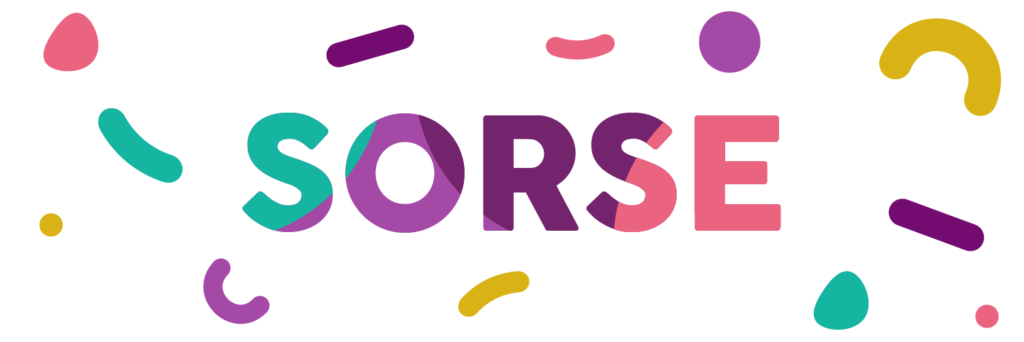
A Series of Online Research Software Events – pronounced ‘source’ is an international answer to the COVID-19-induced cancellation of many national RSE conferences. An international committee has provided an opportunity for RSEs to develop and grow their skills, build new collaborations and engage with RSEs worldwide. This is an open call to all RSEs and anyone involved with research software worldwide, to propose a talk, a workshop, a software demo, a panel or discussion, blog post or poster. After each event, SORSE will provide an opportunity for networking and informal discussion with other participants in small groups. Our programme is looking great with all sorts of events filling November and December already. The Call for Contributions form will remain open continuously and there will be a rolling deadline at the end of the last day (UTC) of each month following which all contributions received over the previous month will be sent for review by the Programme Committee.
The Research Software Alliance (ReSA) Steering Committee is calling for nominations for 4 new members of the Steering Committee in 2021. The ReSA Steering Committee is responsible for the strategic direction of ReSA. The role of the Steering Committee members is to provide strategic inputs to the development of ReSA, to achieve the ReSA vision that research software is recognised and valued as a fundamental and vital component of research worldwide, and the mission to bring research software communities together to collaborate on the advancement of research software.
The ReSA Steering Committee will consist of 9 members in 2021, with the potential for some observer participants if determined relevant by the Steering Committee. ReSA Steering Committee Members are welcome from a broad diversity of individuals, disciplines of study, geographies, career stages and backgrounds, and are expected to have a broad understanding of, and a demonstrated commitment to research software or another relevant area such as open science.
The ReSA Steering Committee decides on the frequency and mechanisms for its meetings, which are currently monthly at a time agreed to by the members. Legal responsibility is held by ReSA’s fiscal sponsors, Code for Science and Society. The ReSA Committee will reflect the global and diverse perspectives of its community, and operate using inclusive participation practices.
If you are interested in nominating yourself or someone else to be a ReSA Steering Committee member, then please fill out this form by Fri 13 November 2020. If you would like further information then please contact Michelle Barker, Director, ReSA. The current Steering Committee will make decisions on membership but plans to move towards an open election in the future. Successful nominees will be contacted in December.
Invitation to quote for developing course materials to aide data science. The SSI is currently supported by the Scottish Funding Council’s (SFC) Upskilling Fund to deliver a programme of data skills training for the Scottish workforce. We are inviting quotes for the provision of a Carpentries-style course curriculum on either of the following two topics:
- A standalone statistics course focussing on a collection of basic and intermediate statistical skills. This module could be targeted to those working in, e.g. public health or veterinary science, but ideally would be of wider interest to data scientists across various areas needing state-of-the-art statistical and visualisation techniques.
- A standalone course on Machine Learning focussing on the basic skills required by data scientists for discovering patterns in data. These skills should be broadly applicable to a number of problems in data science and data mining, for example image and speech recognition and analysis, medical diagnostics and making predictions.
The total funding available for the project to bid for is £12,500. This amount will be shared between successful bids – up to two bids will be funded. Deadline for submissions is 15 November 2020. More info here.
Python Developers Survey 2020 – this is the fourth iteration of the official Python Developers Survey. They aim to understand how the world of Python development looks today and how it compares to last year. A python surprise gift pack to won for 100 randomly chosen entries.
Building a diverse and inclusive research environment. The UK’s engineering and physical sciences community is being encouraged to take part in a series of surveys to inform plans to foster a diverse and inclusive research environment. The community engagement activities have been launched by the Engineering and Physical Sciences Research Council (EPSRC), part of UK Research and Innovation (UKRI), as a report published today highlights gender disparity across EPSRC’s portfolio. Understanding our portfolio – a gender perspective focuses on applications and grants awarded by gender in EPSRC’s portfolio, particularly highlighting large grants. The detailed investigation shows that women are underrepresented in EPSRC’s principal investigator applicant pool, and the council receives consistently low numbers of applications from women, with applicant numbers for large grants particularly low. Members of the community are encouraged to take part in a ‘have your say’ survey on the findings of the report to provide personal experiences of applying for large grants as well as views on potential causal factors for the trends seen. These views will increase understanding of the aspects that influence the inclusion of researchers in our grant portfolio and across the landscape. The Understanding our portfolio: a gender perspective survey is now available. The deadline for participation is 3 December.
The Software Sustainability Institute have been working with the REF 2021 Sub-panel 11 to produce guidance for the submission of software outputs. The guidance provides suggestions for how to evidence the significance, originality and rigour of the software. You can find the guidance here – ‘Good Practice in Submitting Software outputs to REF2021’
REF Real Time Review: Survey to assess views of the Research Excellence Framework (REF) among researchers – UKRI has commissioned RAND Europe to conduct a real-time evaluation of REF 2021 on behalf of the four UK funding bodies. The study aims to assess attitudes, perspectives and behaviours towards the REF 2021 across the sector, and explore how REF policies and changes are embedded in the way submissions are prepared and delivered. As part of this study, they are conducting a survey of research staff across UK higher education institutions. They hope you will be happy to support the study, and contribute to the evidence base that will help assess REF policy and inform its development in the future.
Code literacy across humanities disciplines – The purpose of this survey is to map the different forms of code literacy across humanities disciplines. With this survey, they aim to create a reliable dataset that shows what the barriers are to code literacy, what people’s opinions are about it, and how it can be improved across different fields in the Digital Humanities community.
Wellcome Trust Survey – At Wellcome’s Data for Science & Health Priority Area, they’re looking to better support researchers who use health data.
To do this, they’d like to know what software and coding scripts you have made in the process of carrying out your health data science research.
The Software Sustainbility Institute’s Fellowship Programme provides funding for researchers who want to improve how research software is used in their domains and/or area of work. Each Fellow is given £3,000 to spend over fifteen months. This funding can be used for any activities that meet both the Fellow’s and the Institute’s goals, such as travel to workshops, running training events such as software carpentry, data carpentry or library carpentry, nurturing or contributing to communities of practice, collaborating with other Fellows, or for any other activities that relate to computational practice or policy. In light of the ongoing situation around COVID-19, we encourage applicants to consider that travel and in-person events may not always be feasible, and we particularly welcome plans with online-based activities.
The main goals of the programme are to improve computational practice and to promote this improvement across all disciplines. We encourage our Fellows to use software sustainability practices themselves and to be ambassadors of good practice in their own domains. Our Fellows have come from a wide variety of backgrounds, experience and career stages. What they have in common is a passion for their area, the ability to communicate their ideas effectively, and a real interest in the role of software in research. Applications will open for the Fellowship Programme 2021 on Monday, 7 December 2020. Sign up here to be notified when registration opens.
Events
November
9th Workshop on Python for High-Performance and Scientific Computing – PyHPC 2020: Call for Submissions! PyHPC 2020 is looking for Paper and Lightning Talk submissions. More information is available at the Call for Submissions link. The workshop will be held in conjunction with SC20: The International Conference for High Performance Computing, Networking, Storage and Analysis. November 15th 2020 in Atlanta, GA. More info here.
RSE-HPC-2020 – We are excited to announce the Research Software Engineers in HPC Workshop (RSE-HPC-2020) to be held at SC20 this fall, now occurring as a fully online event! This will be a half-day workshop on Thursday, November 12. The workshop will bring together RSEs and allies involved in HPC, from all over the world, to grow the RSE community by establishing and strengthening professional networks of current RSEs and RSE leaders. We’ll have talks on current activities and plans of national RSE organizations, and panel discussions on the needs of RSEs and RSE groups. We’re finalizing the schedule and will have more details posted here soon.
11th Annual Women in HPC Workshop will be held online at Supercomputing (SC20) on November 11th starting at 10:00 AM (US Eastern). This workshop brings together the HPC community to discuss the growing importance of increasing diversity in the workplace and will recognize and discuss the challenges of improving the proportion of women in the HPC community, and is relevant for employers and employees throughout the supercomputing workforce who are interested in addressing diversity.
AI and data science in the age of COVID-19 – Lessons learned and the way ahead. The Alan Turing Institute is convening a public conference to assess the response of the UK’s data science and AI community to COVID-19. This one day conference will explore the lessons learned during the COVID-19 pandemic. The event will be for researchers and policymakers to share best practice and work together to understand how the UK AI and data science research community can be better positioned to respond to major crises in the future. This is an opportunity to hear from some of the country’s leading voices in the UK’s response to COVID-19 and ask the questions at the forefront of everyone’s minds. The conference will include keynote talks suitable for a general audience and some more technical talks suitable for an academic audience.
Nordic RSE Conference
The first Nordic-RSE conference has been postponed to May 2021. Initially they had planned their first conference for October and then moved it to December but due uncertainties they have now postponed to the 27-28th May 2021, in Stockholm. In its place, they are hosting an online meetup on the 30th November – December 2 to introduce Nordic-RSE and have some RSE related talks and workshops. Registration and the Abstract submission form are open now.
December
Research Software Developers Day – 3rd December 2020
Join the Be-RSE group at their first online event. They are still accepting talks or workshops and registration is now open.
Opportunity to learn ally skills to make your workplace more inclusive with workshops on the 4th December delivered by Malvika Sharan, Emmy Tsang and Yo Yehudi. An important part of collaborative research, and indeed of open science, is compassion. We, as members of different research communities, are too-often inclined to act with an assumption that science, which is supposed to be evidence-based or data-driven, is somehow pure, objective, and above implicit biases. In reality, science is produced by humans, and falls prey to the same biases, societal inequalities and (dis)advantages that humans have. This is reflected in the science we do, and the communities or workplaces we conduct our research in. An Ally Skills Workshop allows its participants to understand various concepts, explore social scenarios and practise simple everyday techniques they can use to make their workplace and communities more inclusive. More info here.
BristolRSE are running a “Christmas in the Cloud” free online workshop on the 10th and 11th December. It is a hands-on workshop where you will learn how to port and optimise applications for the cloud, and how to use portable technologies (such as terraform) to write infrastructure-as-code applications. There are talks plus hackathons, with lots of free cloud credits and time with experienced RSEs and Cloud Architects. We want to help you gain the skills to bridge the gap between software and hardware, and to co-design modern applications that match hardware to software needs. Free for RSEs and researchers working in academia or the public sector. This workshop is being delivered in partnership between the Bristol RSE group and AWS. More info and sign-up links here.
Podcasts
Four new episodes on the RSE Stories podcast series –
- ‘Pushing the bubble‘ from assessing snow fall in Britain to livestock movements, Mike has provided his expertise in data science to policy makers and influencers.
- ‘The Fortran Maestro‘ – where do object oriented design, Fortran, and innovation in designing your role collide? Listen to this episode to find out!
- ‘I learnt how I should have done things..‘ When Nick left the private sector and went back to university to get his degree in computer science he found how to do things better and is now involved in building the AU and NZ RSE Community.
- ‘Brown dog, Arcgis or Pizza? What does it mean to create a sustainable, resilient community?‘ Jong is the Deputy Associate Director of Software at NCSA and his story is important to show diversity to expertise.
Papers
- Interested in how software captures & represents underlying theory, particularly in HPC? A new paper from a workshop (led by Caroline Jay, Robert Haines, Daniel S. Katz, Jeff Carver) explores this & future research needed to better understand it.
- Six Recommendations for Implementation of FAIR Practice was published at the end of October by the EU Commission written by FAIR in Practice Task Force of the European Open Science Cloud FAIR Working Group.
Blog Posts
- #bropenscience is broken science – Kirstie Whitaker and Olivia Guest ask how open ‘open science’ really is.
- ‘What will post-pandemic academic research computing look like?’ asks Jonathan Dursi on his website https://www.dursi.ca/
- The 2nd International RSE Leaders Workshop 2020 – a fantastic summary of the workshop along with summaries from the working groups.
- ‘Key Skills to know before mentoring‘ – by Open Life Science mentors Andrew Stewart, Arielle Bennett, Mallory Freeberg, Malvika Sharan, Meag Doherty, Samuel Guary and Yo Yehudi.
- ‘Advanced Git – linking code repositories using SubModules‘ from Douglas Lowe and Robin Long in Research IT at the University of Manchester
- ‘How should we celebrate the research excellence obscured by the REF? The case of the Research Software Engineer‘ from James Baker
Community info
A new ‘Resources‘ database has been set up on the Society website which will hold the links to all the static useful items that have featured here under Community info. Help us to fill the resources database by submitting an item to the database.
Reminding you about..
Research Software Hour…Hosted by members of the Nordic-RSE community, this continues weekly on Twitch. Research Software Hour is an online stream/show about scientific computing and research software. It is designed to provide the skills typically picked up via informal networks: each week, they do some combination of exploring new tools, analyzing and improving someone’s research code, and discussion. Watchers can take part and contribute code to us which they analyze and discuss on stream. They broadcast on Twitch Thursdays at 20:30 Oslo time / 21:30 Helsinki time.
Imperial College Newsletter…The Imperial College RSE Team have been producing a newsletter for a while now to their institute community. They include a ‘Research Software of the month’, links to blog posts and dates for your diary.
Better Scientific Software – a blog with relevant articles.
Hidden REF…Hidden REF is a year-long competition to highlight the research staff that publications overlook. The way in which the (usual) REF exercise is conducted overlooks many of the people who are vital to the success of research. The Hidden REF will celebrate all research outputs and recognise everyone who contributes to their creation. Anyone who works in a UK research institution can submit to the hidden REF. Read more detail here in this Research Professional news article.
Investigating & Archiving the Scholarly Git Experience Survey… An Alfred P. Sloan Foundation funded project that seeks to investigate the scholarly git experience, and inform the way code and annotations on Git hosting platforms can be made stable, permanently citable, and under active preservation following an established and accepted workflow. Participate in the survey to give them good information about and from the RSE Community!
RSE Worldwide
The RSE campaign is growing around the worldwide and new groups are being created all the time. In this section, we introduce these groups and raise awareness of their success. The Society supports new groups and collaborates with representatives from these groups on various initiatives (papers, international workshops). (In alphabetial order).
AU/NZ RSE Group
Belgium Research Software Engineers Community
It’s great news to see that another RSE chapter has formed! Check out their new website (link above) and they are planning their first conference in December 2020.
CANARIE
CANARIE is the organising body for the RSE movement in Canada.
de RSE
de-RSE Elections
They had their AGM on 27 August online and have elected a new board, which is 5/6 the old board: Chair: Frank Löffler (Friedrich Schiller University Jena); Deputy Chair: Daniel Nüst (Münster University); Secretary: Bernadette Fritzsch (Alfred Wegener Institute); Deputy Secretary: Stephan Druskat (German Aerospace Center (DLR); Treasurer: Stephan Janosch (MPI Dresden); new Deputy Treasurer is Florian Thiery (Römisch-Germanisches Zentralmuseum (RGZM)).
NL RSE
The Netherlands RSE Group (NL RSE) had their first conference in November 2019. From that conference, here is the presentation ‘Five Recommendations for Fair Software‘ and a recap on the ‘Fair Software‘ Session. The NL-RSE meets on regular basis, every two months on average. Netherlands eScience Center, DTL and SURF frequently organise NL-RSE meetups to encourage collaboration and communication between Research Software Engineers in the Netherlands.
Nordic RSE
The first Nordic-RSE conference has been postponed to May 2021. Initially they had planned their first conference for October and then moved it to December but due uncertainties they have now postponed to the 27-28th May 2021, in Stockholm. In its place, they are hosting an online meetup on the 30th November – December 2 to introduce Nordic-RSE and have some RSE related talks and workshops. Registration and the Abstract submission form are open now.
US RSE
The group recently released their governance document. Also, don’t miss this – the US RSE group have released a summary ‘A year of Progress for US-RSE‘ and it’s a great read! Read about the US RSE group in their newsletter here.
Collect your gold star here if you’ve read all the way to the end!

